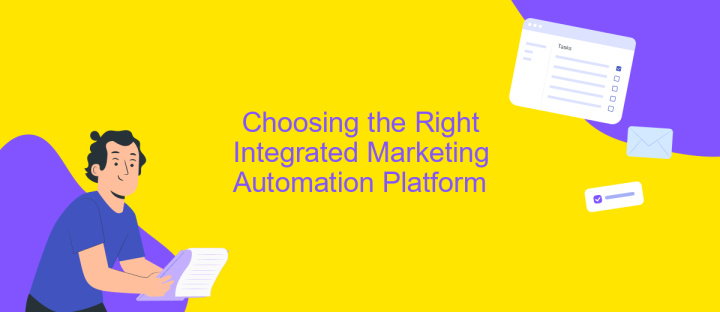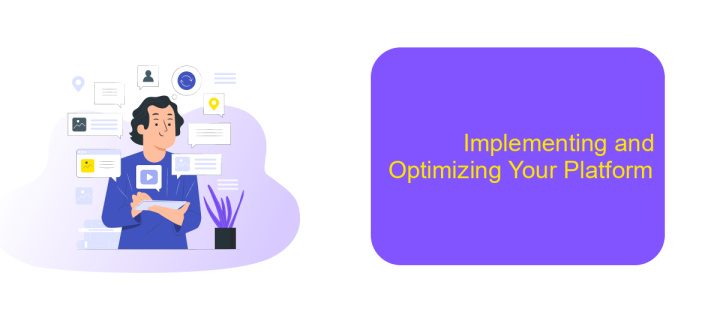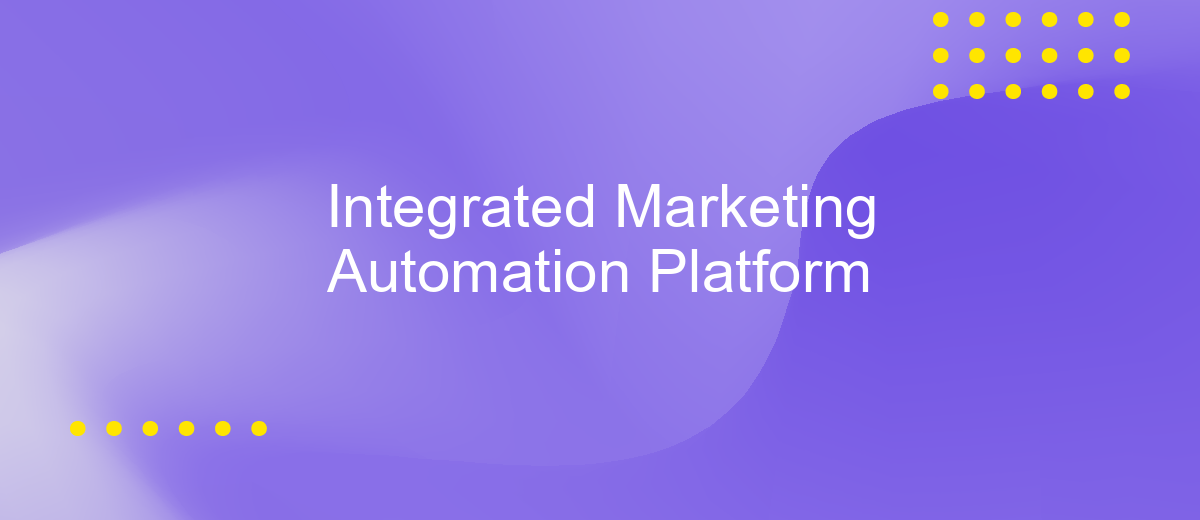Integrated Marketing Automation Platform
In today's fast-paced digital landscape, businesses are increasingly turning to integrated marketing automation platforms to streamline their marketing efforts and enhance customer engagement. These platforms offer a unified solution that combines data analytics, customer relationship management, and automated marketing campaigns. By leveraging these tools, companies can efficiently target their audience, personalize interactions, and ultimately drive growth and success in a competitive market.
Understanding Integrated Marketing Automation Platforms
Integrated Marketing Automation Platforms (IMAPs) are essential tools for modern businesses aiming to streamline their marketing efforts. These platforms combine various marketing processes, such as email marketing, social media management, and customer relationship management, into a single, cohesive system. By automating repetitive tasks, IMAPs allow marketers to focus on strategy and creativity, ultimately enhancing customer engagement and driving growth.
- Efficiency: Automates routine marketing tasks, saving time and resources.
- Consistency: Ensures uniform messaging across all marketing channels.
- Insights: Provides data-driven analytics for informed decision-making.
- Scalability: Adapts to the growing needs of a business.
- Personalization: Enables targeted marketing campaigns based on customer behavior.
By understanding and leveraging the capabilities of Integrated Marketing Automation Platforms, businesses can maintain a competitive edge in the digital marketplace. These platforms not only facilitate seamless communication with customers but also empower marketers to deliver personalized experiences at scale. As a result, companies can achieve higher conversion rates and foster long-term customer loyalty, making IMAPs a vital component of any marketing strategy.
Key Features and Benefits of an Integrated Platform

An integrated marketing automation platform streamlines various marketing processes by unifying tools and data into a single system. This consolidation enables businesses to manage campaigns, track customer interactions, and analyze performance metrics efficiently. Key features include automated email marketing, social media management, and customer segmentation, all of which are designed to enhance engagement and conversion rates. Additionally, these platforms often provide real-time analytics and reporting, empowering marketers to make data-driven decisions and optimize their strategies promptly.
One of the significant benefits of such a platform is its ability to seamlessly integrate with other services, ensuring smooth data flow across different applications. For instance, ApiX-Drive offers robust integration capabilities that allow marketers to connect various apps without technical expertise. This not only saves time but also reduces the risk of errors associated with manual data entry. By leveraging these integrations, businesses can automate workflows, personalize customer experiences, and improve overall marketing efficiency, ultimately leading to increased ROI and business growth.
Choosing the Right Integrated Marketing Automation Platform

Choosing the right integrated marketing automation platform is crucial for maximizing efficiency and achieving your business goals. The right platform should align with your marketing strategy, improve customer engagement, and streamline workflows. Here are some key considerations to guide your decision-making process:
- Features and Capabilities: Ensure the platform offers essential features such as email marketing, CRM integration, analytics, and social media management.
- Scalability: Choose a platform that can grow with your business and handle increasing data and user demands.
- User-Friendliness: Opt for a platform with an intuitive interface that requires minimal training for your team.
- Customer Support: Reliable support is vital for troubleshooting and optimizing platform use.
- Cost: Evaluate the pricing model to ensure it fits within your budget without compromising on essential features.
By carefully evaluating these factors, you can select a marketing automation platform that not only meets your current needs but also supports future growth. A well-chosen platform will empower your marketing team, enhance customer relationships, and drive business success.
Implementing and Optimizing Your Platform

Implementing an integrated marketing automation platform requires a strategic approach to ensure seamless integration with existing systems. Begin by assessing your current marketing processes and identifying areas that can benefit from automation. This will help in selecting a platform that aligns with your business objectives and technical requirements.
Once the platform is selected, focus on a phased implementation to minimize disruptions. Start with core functionalities and gradually integrate additional features. Training your team is crucial during this phase to ensure they are equipped to utilize the platform effectively. Encourage feedback to identify any challenges early on.
- Conduct an audit of existing marketing processes.
- Select a platform that aligns with business goals.
- Implement in phases to ensure smooth integration.
- Provide comprehensive training for your team.
- Continuously monitor and optimize the platform.
Optimization is an ongoing process. Regularly review your platform's performance and make necessary adjustments to improve efficiency. Leverage analytics tools to gain insights into campaign performance and customer behavior. This data-driven approach will help refine marketing strategies and maximize the platform's potential.


Future Trends in Integrated Marketing Automation
As we look to the future of integrated marketing automation, personalization and AI-driven insights will play pivotal roles. Marketers will increasingly rely on advanced algorithms to tailor campaigns to individual preferences, ensuring more meaningful engagement with audiences. The evolution of AI will enable predictive analytics, helping businesses anticipate consumer behavior and optimize their marketing strategies accordingly. Additionally, the integration of voice and visual search capabilities will become more prevalent, allowing for a more seamless and interactive user experience.
Another significant trend will be the enhanced connectivity of marketing tools through platforms like ApiX-Drive. This service simplifies the integration process, allowing businesses to connect various applications effortlessly, thus streamlining workflows and improving efficiency. As the demand for real-time data grows, integrated platforms will need to offer more robust analytics and reporting features. Moreover, the shift towards omnichannel marketing will continue, with businesses leveraging automation to deliver consistent messaging across multiple touchpoints. These trends will empower marketers to create more cohesive and impactful campaigns, driving growth and customer loyalty.
FAQ
What is an Integrated Marketing Automation Platform?
How can an Integrated Marketing Automation Platform benefit my business?
What features should I look for in an Integrated Marketing Automation Platform?
How do I integrate my existing tools with an Integrated Marketing Automation Platform?
What are the common challenges when implementing an Integrated Marketing Automation Platform?
Apix-Drive will help optimize business processes, save you from a lot of routine tasks and unnecessary costs for automation, attracting additional specialists. Try setting up a free test connection with ApiX-Drive and see for yourself. Now you have to think about where to invest the freed time and money!

